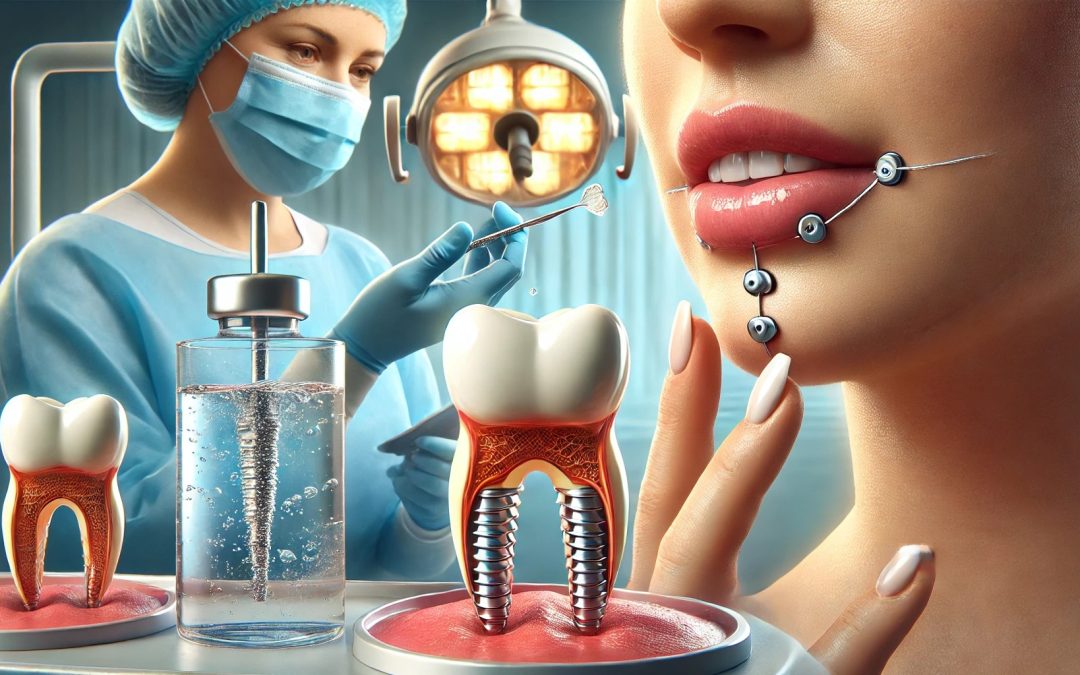Introduction
Getting a dental implant is a significant step toward restoring your smile and oral function. However, proper aftercare is essential for ensuring successful healing and long-term durability. Without the right post-surgery care, you risk complications such as infection, implant failure, or prolonged discomfort. In this guide, we’ll cover the best practices for dental implant aftercare to help you recover smoothly and maintain your implant for years to come.
1. Follow Your Dentist’s Instructions Carefully
Your dentist or oral surgeon will provide specific aftercare guidelines tailored to your case. These instructions may include medications, dietary restrictions, and cleaning techniques to promote proper healing. Failing to follow these guidelines can increase the risk of complications and delay recovery.
💡 Tip: Keep all follow-up appointments to ensure the implant is healing correctly and that no infections or issues develop.
2. Manage Pain and Swelling Effectively
Mild discomfort and swelling are normal after a dental implant procedure. To reduce pain and inflammation:
✅ Take prescribed pain relievers or over-the-counter medications as directed.
✅ Apply an ice pack to the affected area for 10-15 minutes at a time during the first 24 hours.
✅ Avoid strenuous physical activity that may increase swelling or bleeding.
💡 Tip: If pain worsens or swelling persists beyond a few days, contact your dentist immediately.
3. Stick to a Soft Diet
For the first few days after surgery, eating soft foods helps prevent irritation and protects the implant site. Avoid hard, crunchy, or sticky foods that could disturb the healing process. Recommended foods include:
🍲 Yogurt, mashed potatoes, and soup
🍎 Applesauce and smoothies
🍚 Scrambled eggs and soft rice
💡 Tip: Avoid hot beverages, spicy foods, and alcohol as they can increase swelling and irritation.
4. Maintain Proper Oral Hygiene (But Be Gentle!)
Keeping your mouth clean is crucial for preventing infection at the implant site. However, you must be careful to avoid disturbing the healing area. Here’s how:
✅ Rinse gently with warm salt water (avoid vigorous swishing).
✅ Use a soft-bristled toothbrush to clean your teeth, avoiding direct contact with the implant site.
✅ Avoid mouthwash with alcohol, as it may irritate the gums and delay healing.
💡 Tip: After a few days, you can gradually resume your regular oral hygiene routine, but continue to be gentle around the implant area.
5. Avoid Smoking and Alcohol
Smoking and alcohol consumption can significantly impact healing and increase the risk of implant failure.
🚫 Smoking restricts blood flow, slowing down the healing process and increasing infection risk.
🚫 Alcohol can irritate the tissues around the implant and interfere with proper osseointegration (the process of the implant fusing with the jawbone).
💡 Tip: If you smoke, consider quitting or at least avoiding it for the first few weeks after implant surgery to improve healing success.
6. Be Aware of Warning Signs
While some discomfort is normal, certain symptoms may indicate complications. Contact your dentist if you experience:
⚠️ Persistent or worsening pain beyond a few days
⚠️ Excessive bleeding that doesn’t stop
⚠️ Signs of infection (swelling, redness, pus, fever)
⚠️ A loose-feeling implant or difficulty chewing after the healing period
💡 Tip: Early intervention can prevent more serious problems, so don’t ignore unusual symptoms.
7. Long-Term Implant Care for Durability
Once your implant has fully healed, maintaining good oral hygiene and regular dental check-ups will ensure its longevity. To keep your implant in top shape:
✔️ Brush and floss daily, using an implant-safe toothbrush and floss.
✔️ Visit your dentist at least twice a year for professional cleanings.
✔️ Avoid habits like chewing ice or biting on hard objects, which could damage the implant.
💡 Tip: With proper care, dental implants can last a lifetime, providing a strong and natural-looking replacement for missing teeth.
Conclusion
Taking care of your dental implant properly ensures a smooth recovery, prevents complications, and extends its lifespan. By following your dentist’s instructions, maintaining oral hygiene, and making healthy lifestyle choices, you can enjoy a strong and confident smile for years to come.
🔹 Considering a dental implant? Consult with your dentist to learn more about the procedure and the best aftercare practices!

